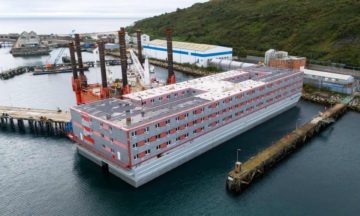Daniel Trilling in The Guardian:
 Here’s a question for you: since the last general election, has the British government been tough or soft on immigration? Depending on your political inclination, the answer might seem obvious – but the reality is more complicated. On the one hand, the Johnson and Sunak governments have brought an end to EU free movement and promised to deport unwanted asylum seekers to Rwanda. On the other, net migration – the difference between the number of people coming to live in the UK and the number of people leaving – reached a record high of more than 600,000 last year.
Here’s a question for you: since the last general election, has the British government been tough or soft on immigration? Depending on your political inclination, the answer might seem obvious – but the reality is more complicated. On the one hand, the Johnson and Sunak governments have brought an end to EU free movement and promised to deport unwanted asylum seekers to Rwanda. On the other, net migration – the difference between the number of people coming to live in the UK and the number of people leaving – reached a record high of more than 600,000 last year.
Depending on your political inclination, this might seem like typical Tory hypocrisy, but the distinguished migration scholar Hein de Haas says it’s a contradiction that runs through governments across the west, no matter who is in charge. Since the second world war, according to a long-term study of data from 45 countries by de Haas and colleagues, immigration policies have tended to become more liberal. At the same time, border defences – in the form of walls and surveillance, or crackdowns on people-smuggling – have gone up. Between 2012 and 2022, for instance, the budget of the EU border agency Frontex rose from €85m to €754m.
The paradox arises, argues de Haas, because governments in the west – committed, as they are, to forms of economic liberalism – are constantly trying to balance three competing demands.
More here.
